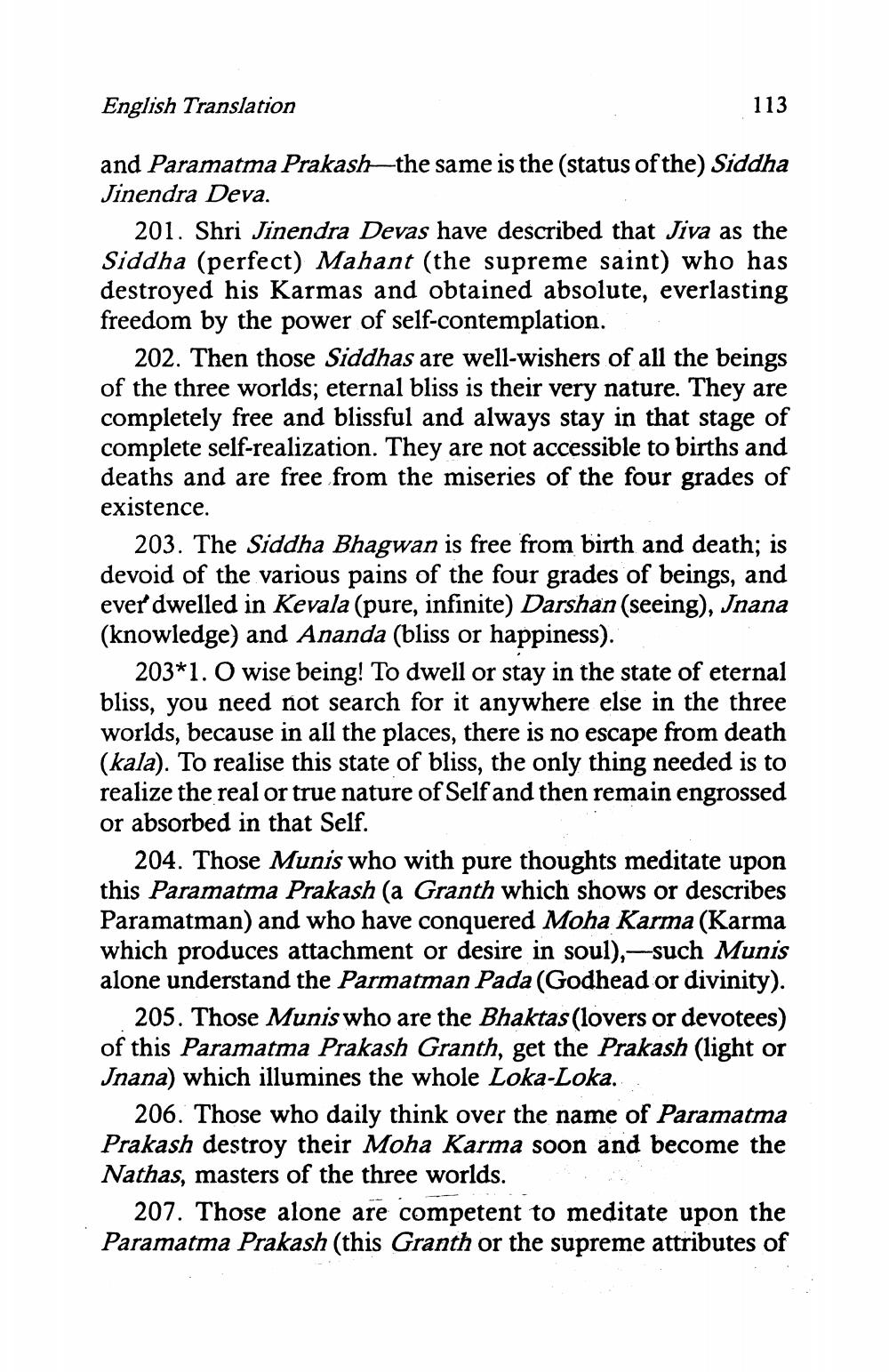________________
English Translation
113
and Paramatma Prakash the same is the status of the) Siddha Jinendra Deva.
201. Shri Jinendra Devas have described that Jiva as the Siddha (perfect) Mahant (the supreme saint) who has destroyed his Karmas and obtained absolute, everlasting freedom by the power of self-contemplation.
202. Then those Siddhas are well-wishers of all the beings of the three worlds; eternal bliss is their very nature. They are completely free and blissful and always stay in that stage of complete self-realization. They are not accessible to births and deaths and are free from the miseries of the four grades of existence.
203. The Siddha Bhagwan is free from birth and death; is devoid of the various pains of the four grades of beings, and ever' dwelled in Kevala (pure, infinite) Darshan (seeing), Jnana (knowledge) and Ananda (bliss or happiness).
203*1. O wise being! To dwell or stay in the state of eternal bliss, you need not search for it anywhere else in the three worlds, because in all the places, there is no escape from death (kala). To realise this state of bliss, the only thing needed is to realize the real or true nature of Self and then remain engrossed or absorbed in that Self.
204. Those Munis who with pure thoughts meditate upon this Paramatma Prakash (a Granth which shows or describes Paramatman) and who have conquered Moha Karma (Karma which produces attachment or desire in soul), --such Munis alone understand the Parmatman Pada (Godhead or divinity).
205. Those Munis who are the Bhaktas (lovers or devotees) of this Paramatma Prakash Granth, get the Prakash (light or Jnana) which illumines the whole Loka-Loka.
206. Those who daily think over the name of Paramatma Prakash destroy their Moha Karma soon and become the Nathas, masters of the three worlds.
207. Those alone are competent to meditate upon the Paramatma Prakash (this Granth or the supreme attributes of




